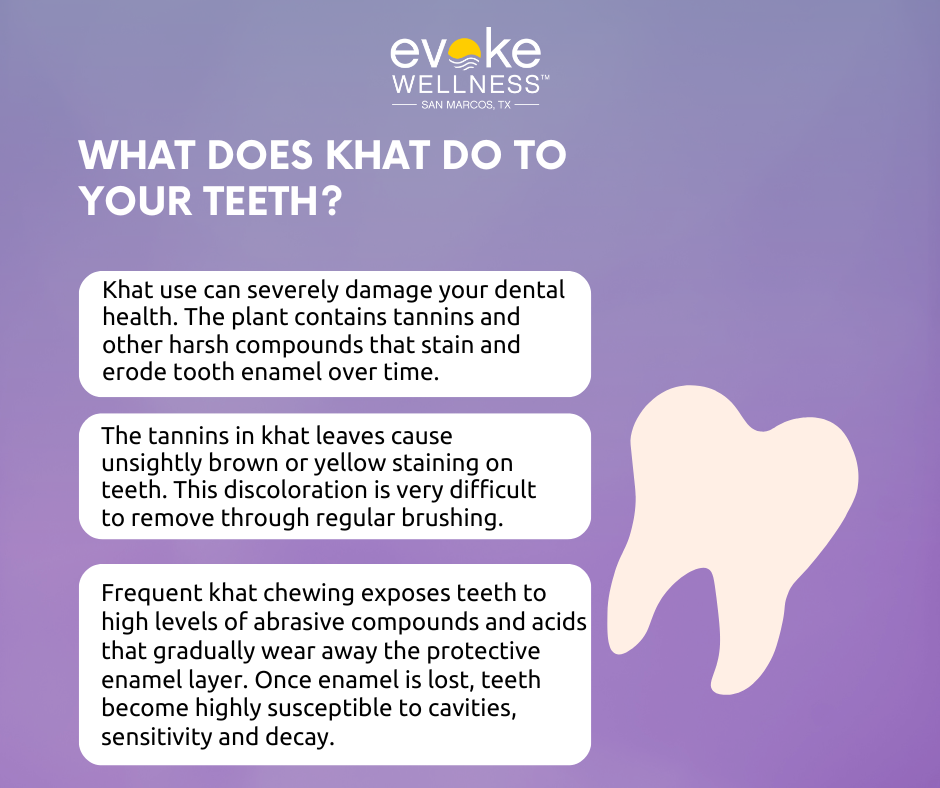Addiction to khat, a drug derived from the Catha edulis plant, is on the rise. Recent studies indicate that khat abuse has increased by over 30% in the past 5 years alone. As you search for ways to overcome this dangerous addiction, effective treatment options exist that can help you regain control of your life. Carefully researching and selecting the right addiction recovery program for your needs is the critical first step. Key components often include medical detoxification, residential treatment, 12-step programs, cognitive behavioral therapy, and dialectical behavioral therapy. With commitment and perseverance, you can overcome khat addiction. Recovery is possible, and specialized treatment programs provide the tools and support needed for you to succeed.
Together, let’s embrace the journey to recovery and the promise of a new beginning. Call us at (833) 503-0734 today or reach out online.
What Is Khat and Why Is It Illegal?
Khat is a plant native to the Horn of Africa and the Arabian Peninsula. Its leaves contain cathinone – an amphetamine-like stimulant that causes excitement, loss of appetite, and euphoria.
Illegal Substance
Despite its cultural significance, khat is classified as an illegal substance in many countries, including the United States. The possession and sale of khat can lead to criminal penalties due to its potential for abuse and negative health effects.
Addictive Properties
Regular khat use can lead to addiction, insomnia, anxiety, tooth decay, and heart problems. Its stimulant effects make it a drug of concern, prompting stricter regulations to curb its spread globally.
What Does Khat Do to Your Brain?
Khat is a stimulant drug derived from the leaves of an evergreen shrub. When chewed, the active ingredients in khat produce euphoric effects similar to amphetamines.
Immediate Effects
- Increased alertness and energy
- Elevated blood pressure and heart rate
- Excitement and anxiety
Long-Term Impacts
Chronic khat abuse can lead to psychosis, depression, and damage to the mouth, teeth and digestive system. It impairs cognitive function and may increase risk of heart disease.
Addiction Risks
Khat creates physical and psychological dependence. Users build up a tolerance, requiring larger doses to achieve the desired “high.” This increases addiction potential and adverse health consequences.
What Does Khat Do to Your Teeth?
Gum Disease Risk
Khat’s irritating effects can inflame and damage gum tissue, increasing the risk of gingivitis and periodontitis. Advanced gum disease ultimately leads to tooth loss if untreated.
Quitting khat use and seeking dental treatment is crucial to halt further damage and restore oral health. Proper oral hygiene, fluoride treatments and restorative procedures may be needed.
Khat Addiction Treatment Programs
Overcoming khat addiction requires comprehensive, evidence-based treatment. We offer various programs tailored to your needs:
Inpatient Rehab
Our residential rehab provides a safe, supportive environment to detox and recover. Services include:
- Medically supervised detox
- Individual therapy and group therapy
- Holistic wellness activities
Outpatient Treatment
For milder addictions or after inpatient care, outpatient programs allow you to live at home. Options include:
- Intensive outpatient program (IOP)
- Partial hospitalization program (PHP)
- Continuing therapy and support groups
Evidence-Based Therapies
Our addiction specialists use proven therapeutic methods such as:
- Cognitive behavioral therapy (CBT)
- Dialectical behavior therapy (DBT)
- 12-step program facilitation
With compassionate care and personalized treatment plans, you can overcome khat dependence and reclaim your life.
Medical Detox for Khat Addiction
Overcoming khat addiction requires professional medical detox. The withdrawal can be intense, with anxiety, depression, fatigue and insomnia common.
Safe, Supervised Environment
A medical detox center provides a safe, controlled setting to rid your body of khat under 24/7 supervision. Medications help ease uncomfortable symptoms as the drug clears your system.
Nutritional Support
Khat use can deplete vital nutrients. Medical staff ensure you stay hydrated and receive proper nutrition during detox to support your recovery.
Transition to Ongoing Treatment
After stabilizing, you transition directly into an inpatient or outpatient addiction treatment program. This comprehensive approach gives you the best chance at lasting sobriety.
Residential Rehab Programs for Khat Addiction
If khat addiction has severely disrupted your life, a residential rehab program may be the ideal solution. These inpatient programs provide round-the-clock support and structured treatment in a secure, substance-free environment.
Focused Treatment
In residential care, you’ll receive intensive, specialized therapies tailored to overcoming khat dependence. Through individual and group counseling, you’ll gain insights into your addiction’s root causes and develop healthy coping strategies.
Holistic Healing
Top rehab centers promote holistic recovery by addressing your physical, mental, and spiritual needs. Services like nutritional guidance, fitness activities, and mindfulness practices complement evidence-based therapies for comprehensive healing.
Aftercare Planning
Before completing the program, you’ll work closely with counselors to develop an aftercare plan. This personalized strategy outlines continuing care recommendations to maintain sobriety and prevent relapse after transitioning back home.
Cognitive Behavioral Therapy for Khat Addiction
Changing Thought Patterns
Cognitive behavioral therapy (CBT) helps individuals with khat addiction identify and change harmful thought patterns and behaviors. Through CBT, you learn coping strategies to resist drug cravings and avoid relapse.
Skills for Recovery
CBT equips you with vital skills like recognizing addiction triggers, managing cravings, preventing lapses, and maintaining motivation. Regular CBT sessions reinforce positive behavior changes essential for long-term recovery.
Evidence-Based Approach
Numerous studies demonstrate CBT’s effectiveness in treating substance use disorders, including khat addiction. This evidence-based, goal-oriented therapy facilitates behavior modification for successful addiction recovery.
Dialectical Behavior Therapy for Khat Addiction
Dialectical behavior therapy (DBT) is an effective treatment for khat addiction. It helps you develop skills to manage cravings, regulate emotions, and improve relationships.
Key DBT Techniques
- Mindfulness exercises to stay present and aware
- Emotion regulation skills to cope with urges
- Distress tolerance to get through difficult situations
Comprehensive Treatment
DBT is most effective when combined with other evidence-based therapies like cognitive behavioral therapy. A comprehensive treatment program provides:
- Medically-supervised detox to manage withdrawal
- Individual and group counseling sessions
- Family education and support services
Through DBT’s focus on acceptance and change, you can build a life worth living, free from khat addiction.
FAQ: What Are the Most Effective Khat Addiction Treatment Options?
The most effective khat addiction treatment combines medical detox and evidence-based therapies. Key options include:
Residential Treatment Programs
- Provide 24/7 care and comprehensive services to safely withdraw and recover.
- Ideal for those with severe khat dependence or co-occurring disorders.
Outpatient Treatment
- Offers counseling, therapy, and support groups while living at home.
- Best for mild to moderate khat addiction and stable home environments.
Cognitive Behavioral Therapy (CBT)
- Helps identify and change harmful thought and behavior patterns driving khat abuse.
- Develops coping skills to prevent relapse and achieve long-term sobriety.
Dialectical Behavior Therapy (DBT)
- Teaches mindfulness, emotional regulation, and distress tolerance skills.
- Particularly helpful for those with co-occurring mental health issues.
Conclusion
In closing, khat drug abuse is clearly on the rise, posing serious risks to individuals and communities. If someone you know is struggling with khat addiction, effective treatments do exist. Consider residential programs, medical detox, 12-step recovery, or therapies like CBT and DBT. With compassion and evidence-based care, recovery is possible. Do not lose hope, even if past efforts failed. By choosing the right treatment program for your needs and committing fully, you or your loved one can overcome khat dependence. A brighter future awaits those willing to take the first step.
Begin Your Journey with Evoke Wellness at San Marcos
If you or a loved one is considering treatment, Evoke Wellness at San Marcos invites you to contact us. Our compassionate team is ready to answer your questions, discuss your needs, and help you take the first steps toward recovery. At Evoke Wellness, you will find more than just a treatment program – you’ll discover a community dedicated to your wellness and success. Together, let’s embrace the journey to recovery and the promise of a new beginning. Call us at (833) 503-0734 today or reach out online.



